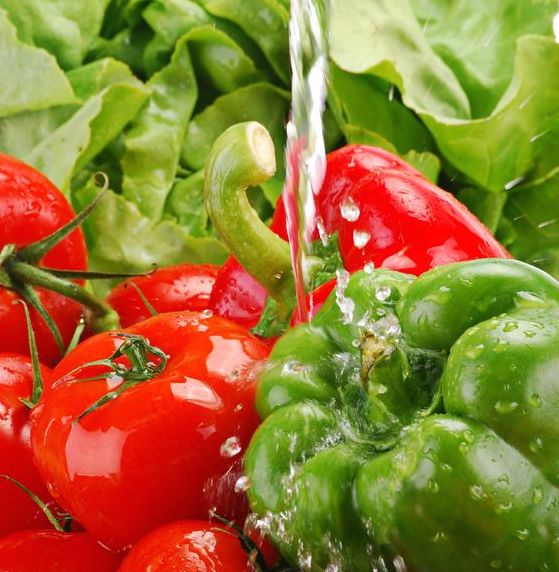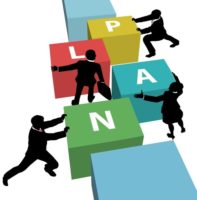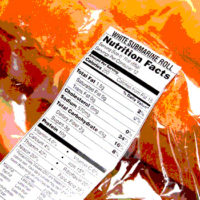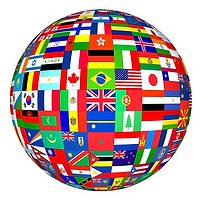The U.S. Centers for Disease Control and Prevention (CDC) released the nation’s food safety grades in April and the report card showed that foodborne infections continue to be an important public health problem. The data was collected from the Foodborne Disease Active Surveillance Network (FoodNet), experts from the CDC, ten state health departments, the U.S. Department of Agriculture’s (USDA) Food Safety and Inspection Service and the U.S. Food and Drug Administration (FDA). FoodNet logged more than 19,000 infections, 4,200 hospitalizations and 80 deaths from nine pathogens it tracks for 48 million people—encompassing about 15 percent of the American population. Overall, the CDC estimates that each year roughly one in six Americans get sick, 128,000 are hospitalized and 3,000 die of foodborne illnesses. The CDC recognizes that enhanced measures are needed to control or eliminate pathogens in domestic and imported food. There is a critical need to reduce or prevent contamination of food during growing, harvesting, processing, preparation and serving. This includes the training and equipping of food service personnel with the best tools and the necessary knowledge to provide safe food for consumers. The challenge is not just eliminating the harmful pathogens, but doing so with products and processes that are themselves safe for food and food preparation environments.
 For meeting these challenges, there is a solution that is simpler than one might think. It’s called electrolyzed water, also known as eWater. The process combines tap water with small amounts of food-grade salt and low levels of electricity in special on-site generators to produce two different products—highly efficient cleaner-degreasers and powerful sanitizer-antimicrobials. The eWater products are approved for cleaning and sanitizing throughout food service operations and food-contact surfaces, as well as a wash for fruits and vegetables. In short, eWater is an effective tool for food safety––it doesn’t harm food, employees or the environment, and it can provide significant financial benefits.
For meeting these challenges, there is a solution that is simpler than one might think. It’s called electrolyzed water, also known as eWater. The process combines tap water with small amounts of food-grade salt and low levels of electricity in special on-site generators to produce two different products—highly efficient cleaner-degreasers and powerful sanitizer-antimicrobials. The eWater products are approved for cleaning and sanitizing throughout food service operations and food-contact surfaces, as well as a wash for fruits and vegetables. In short, eWater is an effective tool for food safety––it doesn’t harm food, employees or the environment, and it can provide significant financial benefits.
History of eWaterI
In the United States, eWater is just beginning to be acknowledged, understood and applied in the foodservice industry. However, eWater is not a new concept.
Scientist Michael Faraday discovered the laws of electrolysis in the mid 1800s. From that beginning, eWater as a technology has matured to be used throughout the world for a wide array of applications especially in Asia, Russia and other areas of the world. In Japan, eWater is used to fill swimming pools and clean medical instruments. Because of its ability to kill fungi, bacteria and viruses without harming human tissue, it is also used in medical procedures. Japan’s sushi industry has saved untold millions of dollars by washing raw fish with eWater. Bacteria and microbes on the fish and other meats can easily be treated with eWater without harming the fish prior to consumption. British and Australian grocery stores and restaurants spray vegetables and meat products with eWater, thus eliminating the bacteria that cause illness and decay.
“Foodborne illnesses can destroy a restaurant’s reputation. It can lead to product recalls, loss of revenue and, in too many cases, loss of lives. eWater is able to effectively eliminate pathogens responsible for foodborne illnesses, prevent contamination and make germ control within the food safety industry a lot more manageable,” says eWater Advantage vice president Mark Stedelbauer. eWater Advantage provides eWater solutions to a variety of industries including foodservice, hospitality, senior care, athletics, childcare and fitness.
Approved Uses
The sanitizer is a fast-acting, broad-spectrum antimicrobial that is tough enough for effective microbial control but gentle enough to be approved by the FDA as an antimicrobial wash on fruits and vegetables. As a produce wash, not only are potentially harmful microorganisms removed, but the bacteria that accelerates decay are also removed, thereby extending the shelf-life of the food. The cleaner-degreaser is highly effective at removing oils, grease and proteins while leaving surfaces free of any residue that can trap grime and bacteria—potentially causing contamination and new bacterial growth. During produce wash, the cleaner-degreaser is effective at stripping away oil-based residues from pesticides, as well as loosening soil. Both products have Generally Recognized As Safe status and are compliant with FDA Food Code requirements, and both are free from chemical-additives––they do not contain phthalates, ammonium quaternary compounds or glycol ether.
Currently the USDA approves the use of the antimicrobial as a wash for specific beef and poultry processing applications. With many studies showing the antimicrobial to be safe and highly effective on meats, poultry and seafood, it’s just a matter of time until there is wider approval of its use with these products in addition to produce. The advantage is the effective removal of potentially harmful organisms along with the surface bacteria that promotes decay, keeping items like fish fresh for days longer––and safer for consumption.
On-site generators used to create eWater are recognized in the 2013 Food Code and are classified by the U.S. Environmental Protection Agency (EPA) as pesticidal devices subject to Federal Insecticide, Fungicide, and Rodenticide Act requirements. The EPA approves of the sanitizer as ‘tolerance exempt’ for food-contact surfaces to a maximum concentration of 200 ppm. As current FDA Food Codes prescribe chlorine as an effective sanitizer, eWater meets those requirements. In sinks, for example, the eWater sanitizer is applied and monitored the same as a chlorine product, but has been proven through equivalency testing to be more effective and faster-acting even at lesser concentrations, all while being safer for employees. With eWater made on-site there are no concentrates to deal with, no potential for mixing errors and no chemical packaging needing disposal.
When considering food safety, food isn’t the only concern. Food handlers, processors, restaurant employees and customers all have the same desire to be in safe and healthy environments. By replacing potentially harmful conventional cleaning and sanitizing products, eWater helps to create safer environments for employees and customers alike.
Simple to Install and Use
 The simplicity of eWater is a huge bonus. Both the sanitizer and the cleaner-degreaser can easily be used throughout a food service operation. The products are effective at cleaning and sanitizing floors, bathrooms, tables, countertops and cooking equipment. This means that eWater can replace all-purpose cleaners, glass cleaners and more. The systems are easy to install and maintain, and training employees is simple. Risks of mixing incompatible chemicals and improper dilution or contact with concentrates are eliminated, positively impacting risk management issues. For larger operations involving food processing or beverage bottling, eWater systems can be extremely beneficial for clean-In-place requirements.
The simplicity of eWater is a huge bonus. Both the sanitizer and the cleaner-degreaser can easily be used throughout a food service operation. The products are effective at cleaning and sanitizing floors, bathrooms, tables, countertops and cooking equipment. This means that eWater can replace all-purpose cleaners, glass cleaners and more. The systems are easy to install and maintain, and training employees is simple. Risks of mixing incompatible chemicals and improper dilution or contact with concentrates are eliminated, positively impacting risk management issues. For larger operations involving food processing or beverage bottling, eWater systems can be extremely beneficial for clean-In-place requirements.
Environmentally Beneficial
In addition to being good for people and food, eWater is also extremely positive for the environment. Installing an eWater system offers a sustainable way to clean and sanitize. Think of the carbon footprint for using traditional products. There are many resources needed to create the products and packaging:
• the fuel needed for transporting
• the disposal of empty packaging and containers
• the impact of residual substances let into the air, ground and water, many of which are not removed during water treatment.
With eWater, the on-site generators produce as much product as needed—eliminating the worry and hassle of reordering, shipping, storing and disposal of packaging. And after use, eWater leaves no negative environmental impact––just water and salt. Because eWater does not leave lingering chemical residues or harmful fumes indoor air quality is not compromised.
Financially Viable
From a financial perspective, installing an eWater system is a smart investment. The installation cost is easily recouped because a restaurant’s total cleaning expense is reduced. Leased installations are typically less than monthly cleaning expenses, making that option immediately attractive. Costing only pennies per gallon to create, employees, facility managers and food handlers can use as much product as they want without concern for cost, storage or shipping.
Financial impact also includes the positive consumer-facing message of “green” and sustainability. People care about the environment, their health and the products they consume. The chemical industry itself is eager to produce cleaning products that are safer or gentler or free from additives like dyes and fragrances, and they do so because the marketplace responds to that message. Increasingly consumers are choosing products and services that reflect this desire for improved health and safety for people and the planet.
Food-related businesses using eWater benefit from this trend as it demonstrates their commitment to the health and well-being of customers, employees and the environment. Talking about “going green” makes it possible to gain a positive response from consumers by focusing on replacing harsh chemicals with safer, natural products. Ewater continues and extends that message and turns cleaning and sanitizing into a positive promotional message. It is a message customers are responding to, and businesses that embrace it are being rewarded.
From Skeptic to Believer
 Marcus Hall was skeptical about eWater at first but quickly became a believer. He’s the owner of The Cowfish, a North Carolina-based trend-setting restaurant with multiple locations offering fresh sushi and burgers on the same menu. Known for its “Burgushi”—sushi rolls created using burger components—The Cowfish also specializes in sandwiches created using sushi components. David Lucarelli, executive chef at The Cowfish, was familiar with eWater from his training in Italy and had mentioned the product to Hall on several occasions. A food science enthusiast, Lucarelli was well versed in the chemistry behind eWater and its promise for food safety, and knew it would fit in with The Cowfish’s culture and “all natural all the time” philosophy.
Marcus Hall was skeptical about eWater at first but quickly became a believer. He’s the owner of The Cowfish, a North Carolina-based trend-setting restaurant with multiple locations offering fresh sushi and burgers on the same menu. Known for its “Burgushi”—sushi rolls created using burger components—The Cowfish also specializes in sandwiches created using sushi components. David Lucarelli, executive chef at The Cowfish, was familiar with eWater from his training in Italy and had mentioned the product to Hall on several occasions. A food science enthusiast, Lucarelli was well versed in the chemistry behind eWater and its promise for food safety, and knew it would fit in with The Cowfish’s culture and “all natural all the time” philosophy.
An environmentally-conscious business, The Cowfish uses corn-based to-go containers as well as other recycled products. Their commitment to providing a top quality dining experience extends to how they run and maintain their business and they seek ways to highlight their approach with customers. Hall and Lucarelli see eWater as another way to make a difference.
“We want to be better stewards of the earth,” says Lucarelli. “We can solve a lot of problems with eWater without causing a negative impact on the environment.”
Using eWater as an integral part of the kitchen ensures that The Cowfish is maintaining safe and sanitary food production and serving the best product they can. From washing fruits and vegetables to sanitizing surfaces, cutting boards and utensils, to maintaining dining tables (without the annoying smell of chemical cleaners for diners) the overall impact has been significant.
“I’m much more confident in the products we serve now that we are using eWater. Training employees is better as well,” says Lucarelli.
Both Hall and Lucarelli see using eWater as a smarter, more beneficial way of handling food safety problems.
“The fee per month for leasing equipment is half the cost of the chemicals it’s replacing,” says Hall. “With our business model, using eWater combines being environmentally conscious with business costs––and that’s a no brainer.”
Lucarelli knows that eWater is a hard concept to grasp given that the American food industry has been trained to use the strongest degreaser money can buy and kill bacteria with the cheapest sanitizer on the market. In the long run, Lucarelli thinks that the more people understand what eWater can do, the more those in the food safety industry will adopt it.
“In ten years, we will look back on the foodservice industry and wonder what took so long for eWater to become a standard way of operating. It’s simple, effective, scientifically sound, financially viable and it protects food quality, people and the planet. As we like to say, it matters.” says Stedelbauer.
Visit eWateradvantage.com for more information.




